


You’ve been discriminated against. And you lost your job. You’ve brought a lawsuit. You’ve likely been at this for years. You’re angry. Perhaps you had to check a box when asked whether you’ve been fired.
And now, you’re on the verge of actually winning. Whether it’s a settlement agreement or at trial.
Until this point, you may not have stopped to consider what you actually win. In this post, we’ll talk about just that. What damages you can win in an employment case.
Here’s the breakdown:
A Title VII violation is a violation of federal anti-discrimination and harassment employment law.
Title VII of the Civil Rights Act of 1964 protects certain groups of employees against employment discrimination and harassment. Employers cannot discriminate or harass employees based on:
These groups of employees are known as protected classes. If you are included in any of these protected classes, your employer’s discrimination against you may result in a Title VII violation.
In Title VII discrimination cases, your employer must take an adverse employment action against you. An adverse employment action means that your employer took action that negatively affected your employment.
This could mean demotion, termination, reassignment, or pay reduction.
You will also have to present a prima facie case. This means that you need evidence that your employer discriminated based on your inclusion in a protected class.
After you present your case, your employer will have the opportunity to provide a legitimate non-discriminatory reason why the adverse action taken against you was not discriminatory.
If your employer is able to give such a reason, you will have to prove that the reason is pretext. This means that the stated reason is not the real reason you were terminated.
Concerning harassment, you need not show that your employer took an adverse employment action against you. Rather it’s sufficient to show that some form of harassment occurred. This normally presents itself in the form of a hostile work environment.
If your employer discriminated against you or harassed you based on your inclusion in a protected class, it has committed a Title VII violation.
If your employer violated Title VII, you are entitled to recover damages.
You may be familiar with other types of civil cases, like personal injury. In those types of cases, plaintiffs typically receive two types of damages: compensatory and punitive damages.
In Title VII cases, you can actually recover for different categories of damages.
That’s one of the nice things about employment law. The jury is presented with different ways in which you can recover.
This refers to the amount of money that you lost because you were wrongfully terminated. This is usually the largest amount of damages awarded.
The larger your salary, the more amount of money you get in back pay. This makes it tough for some plaintiffs who are out of work for long periods of time. And waiting for their employment case to settle.
The good news about back pay is that it is mandatory and not discretionary. This means that if you win at trial, you automatically get back pay.
That is, unless you earned money after your employer fired you. This is called mitigation. You have an obligation to look for another job after your employer fired you. Your back pay will be offset by the amount of money that you earned if you find a job.
These damages are aimed at deterring an employer’s bad conduct. In other words, they are awarded so your employer does not do it again.
Depending on how egregious your employer’s wrongful conduct was, you might be able to secure a good settlement based on the threat of punitive damages.
In employment cases, punitive damages are available. But they differ slightly from punitive damages in other types of cases.
There is a cap on punitive damages sought under Title VII of the Civil Rights Act of 1964.
Lastly, punitive damages are given in cases of intentional discrimination. And after you prove intentional discrimination, you have to show that the discrimination was done with malice or reckless indifference to your employment rights.
Compensatory damages seek to make an employee whole. This means that the law aims to put you in the exact position you would have been in had the harm not occurred. There is a cap on compensatory damages.
This cap is included with the cap on punitive damages.
There are generally two types of compensatory damages that we see in employment cases: emotional distress damage and lost benefits:
These damages are for your pain and suffering. Racism and discrimination can take a toll on your mental health. That’s for sure. You have a right to allege that you’ve been distressed by the discrimination you’ve endured.
A skilled trial lawyer can help navigate and convince a jury of your emotional distress claim.
You can also recover lost benefits.
These are the benefits of your job. Perhaps you lost your pension, health care, or 401k. There are other benefits you could have lost, but you get the idea.
We’ll discuss compensatory and punitive damages in slightly more detail later.
This is a type of damage that awards you money based on your future ability to work. We’ll discuss this in more detail.
Employment law differs from other types of law when it comes to attorneys fees. Attorneys fees are awarded if you win at trial in a Title VII case.
The court does have discretion to reduce the amount of attorneys fees you receive. For example, if your attorney ran up expenses in your case or failed to keep an accurate track of attorney time, the court likely will.
Front pay is damages for future lost earnings. Front pay compensates you for wages that you will not earn in the future because of Title VII discrimination.
In the most extreme example, an award of front pay is appropriate where an employee will never find a job again. This often happens when an employee is approaching retirement. And the employer wrongfully fires that employee.
After a certain age, it becomes much harder for older workers to gain new employment.
You can also get front pay solely based on reputational harm.
In this case, the company harmed your reputation. And this prevents you from getting the same type of employment you previously had.
The court would award you based on lost future earnings.
As discussed above, on some occasions, you might be entitled to punitive damages. In employment cases, punitive damages are capped on a sliding scale.
Both compensatory and punitive damages are combined together in the scale. This means that the cap precludes you from recovering both punitive and compensatory damages after a certain point.
The most you can recover for both compensatory and punitive damages (combined) is $300,000 for employers with 500 employees or more.
But, depending on the size of the employer, you may recover much less. The scale starts at $50,000 and ends at $300,000.
Employment lawyers have attempted to maneuver around this damage cap with little success.
Title VII is just one aspect of employment law. There are other aspects of employment law that Title VII does not cover.
It does not cover employment contracts unless a separate Title VII violation occurred. If your employer breaches your employment agreement, you will receive compensatory damages for the breach.
Further, there are separate tort [wrongful termination internal link] actions. These may include, defamation, intentional infliction of emotional distress, invasion of privacy, fraud, and public policy violations.
Although these are separate tort claims, you can still bring them with your Title VII claim.
Further, other types of employment claims have their own statutes. You may have an employment discrimination claim for age or disability.
These types of claims are very similar to those arising under Title VII. And the damage award is almost the same.
Damages are the reason that you bring a lawsuit in the first place. Yet sometimes they receive very little thought.
In employment cases, you may have to keep track of your employment-related expenses. Or figure out your out-of-pocket medical expenses.
You shouldn’t think about these things at the beginning or end of your case. Rather, you should start at the beginning.
If you do, you can keep track of your expenses and make sure that you recover every penny that you deserve.
The Lacy Employment Law Firm
Ⓒ 2022 All Rights Are Reserved